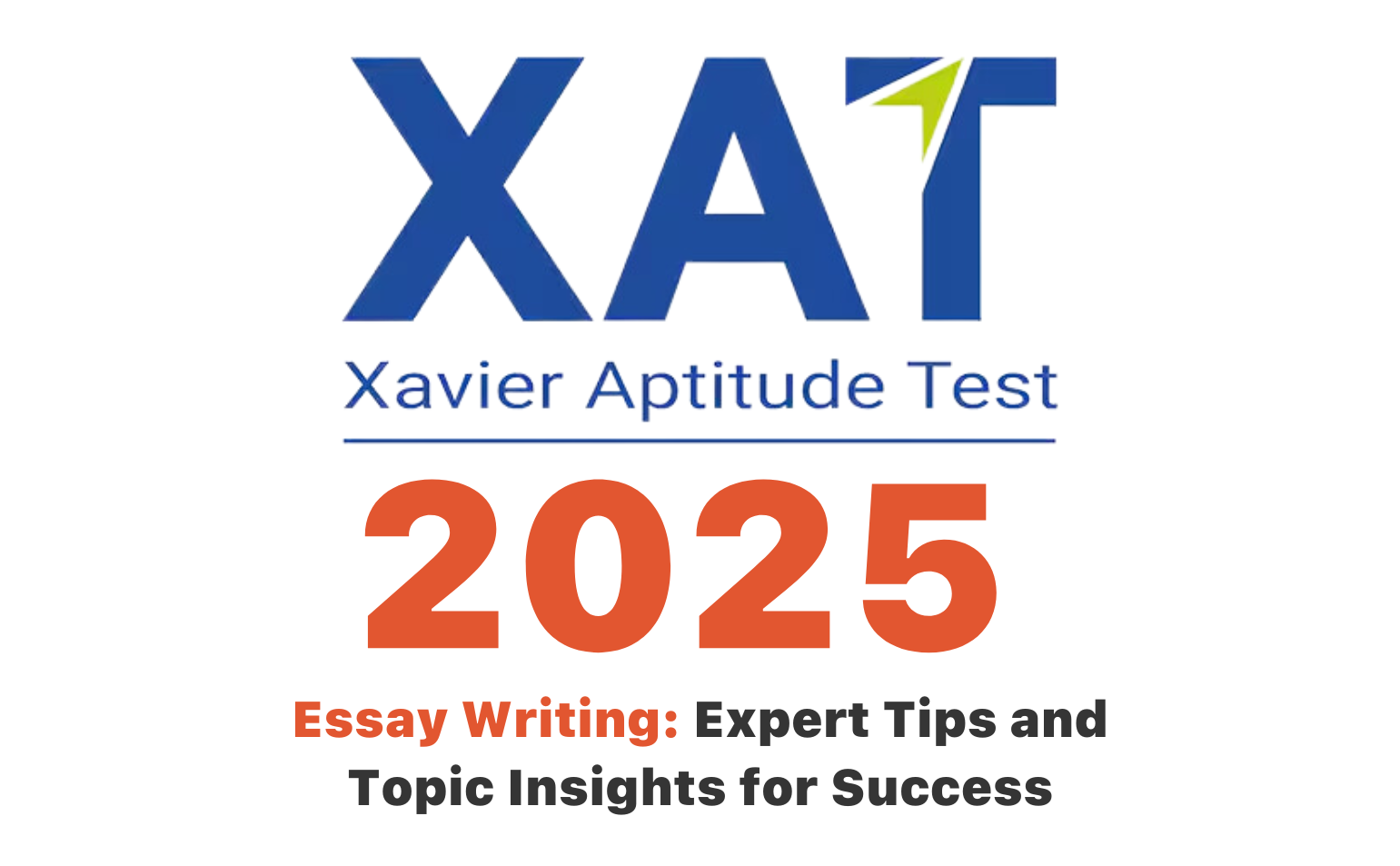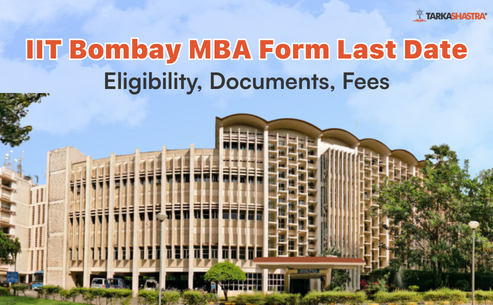Here’s some great news for XAT 2026 aspirants: essay writing is no longer part of the main XAT exam! This significant change means you won’t have to juggle essay writing alongside other sections during the actual test. However, don’t put away your writing skills just yet. Essay writing remains crucial for the XLRI selection process and interviews at other premier business schools that accept XAT scores.
While the main exam format has changed, your ability to think critically, present coherent arguments, and showcase communication skills will still be tested during the post-XAT selection process. This guide provides practical insights into developing essay writing skills that will serve you well during XLRI’s selection rounds and interviews at other top B-schools.
Why Essay Writing Still Matters for XAT Aspirants
Even though XAT 2026 has eliminated essay writing from the main exam, these skills remain indispensable for your MBA journey. Here’s why you should continue honing your writing abilities:
XLRI Selection Process: XLRI continues to evaluate written communication skills during their post-XAT selection rounds. Your ability to articulate thoughts clearly often plays a decisive role in final admission outcomes at XLRI Jamshedpur, Delhi and other XAT Accepting Colleges..
Other B-School Interviews: Many premier institutions accepting XAT scores include written exercises or ask for essay-style responses during group discussions and personal interviews.
Professional Readiness: Strong writing skills are fundamental for MBA coursework, case study presentations, and future corporate communications. Starting early gives you a significant advantage.
Critical Thinking Development: Writing structured responses under pressure showcases decision-making ability—an essential trait that B-schools actively seek in candidates.
General Tips to Practice Essay Writing Effectively
Start with Daily Writing Habits
The best way to improve your essay writing is through consistent practice. Start small and build momentum:
- Morning Pages: Write 200-250 words every morning on any topic that interests you. This builds fluency and confidence.
- Opinion Pieces: Read a news article and write a brief response. This helps you form quick, coherent opinions.
- Topic Lists: Maintain a list of 50+ essay topics covering business, social issues, and abstract concepts. Practice one topic weekly.
Master the Art of Quick Brainstorming
Since you’ll often have limited time during selection processes, develop rapid idea generation skills:
- Mind Mapping: Spend 2-3 minutes creating a visual map of ideas before writing.
- SPELT Framework: Use Social, Political, Economic, Legal, and Technological angles to explore any topic comprehensively.
- For-Against Lists: Quickly jot down pros and cons to ensure balanced perspectives.
Build Your Knowledge Base Systematically
Regular reading is non-negotiable for strong essays. Create a structured approach:
- Daily Routine: Read at least one editorial from Economic Times or Hindu Business Line each morning.
- Weekly Deep Dives: Choose one complex topic (like sustainable development or digital transformation) and read multiple perspectives.
- Monthly Reviews: Summarize key themes and arguments from your reading to build a mental library of examples.
The Structure That Works Every Time
Whether for XLRI’s selection process or other B-school interviews, stick to this proven structure:
Introduction (40-50 words): Hook the reader with an interesting observation, define the topic clearly, and state your main argument. Avoid generic openings like “In today’s world…”
Body (120-150 words): Present 2-3 well-developed points with specific examples. Each paragraph should advance your argument while acknowledging different perspectives where relevant.
Conclusion (30-40 words): Summarize your key points and end with a forward-looking statement or call to action that demonstrates mature thinking.
For most B-school assessments, aim for 250-300 words total. This length allows depth while maintaining reader engagement.
Key Strategies for Excellence
1. Practice with Real XAT-Style Topics
Even though essays aren’t in the main exam, XLRI and other schools often use similar themes. Practice with these types:
Abstract Concepts:
- “The most beautiful things in life cannot be seen or touched”
- “Listening is a dying art in the digital age”
- “Change is the only constant in modern business”
Contemporary Issues:
- “Is remote work sustainable for long-term organizational culture?”
- “Should AI development be regulated by governments?”
- “Rapid decarbonization in the context of India’s growth needs”
Business Ethics:
- “Profit maximization vs. stakeholder welfare”
- “Corporate social responsibility: necessity or marketing gimmick?”
2. Develop Your Unique Tone
Don’t try to write what you think evaluators want to hear. Instead:
- Personal Examples: Use experiences from internships, projects, or observations to support arguments.
- Balanced Perspectives: Show you can see multiple sides of complex issues without sitting on the fence.
- Clear Stance: Take a position but support it with logical reasoning rather than emotion.
3. Time Management Mastery
During XLRI’s selection process or B-school interviews, you’ll often have limited time:
- 5-minute rule: Spend 5 minutes planning, 15 minutes writing, 5 minutes reviewing.
- Speed Writing: Practice writing 250 words in 15 minutes while maintaining quality.
- Clock Awareness: Train yourself to check time without breaking concentration.
Common Pitfalls to Avoid
Overcomplication: Simple, clear language trumps complex vocabulary every time. Focus on communicating ideas effectively rather than impressing with big words.
Generic Examples: Avoid overused examples like “Steve Jobs” or “COVID-19” unless you bring fresh insights. Personal observations often work better.
Fence-sitting: While balance is important, don’t avoid taking a clear position. Evaluators prefer candidates who can make decisions and defend them.
Grammatical Errors: Proofread carefully. Small mistakes can undermine otherwise strong content.
How to Tackle Different Question Types
Opinion-Based Questions: Take a clear stance early and defend it consistently while acknowledging counterarguments briefly.
Abstract Topics: Ground abstract concepts in concrete examples. If discussing “leadership,” reference specific situations or historical examples.
Current Affairs: Connect contemporary issues to broader themes. Link specific events to underlying trends or principles.
Case-Based Scenarios: If given a business situation, identify key stakeholders, analyze options, and recommend specific actions.
Evaluation Criteria for B-School Assessments
Understanding how you’ll be evaluated helps target your preparation:
| Criteria | What Evaluators Look For |
| Content Quality | Relevant examples, logical arguments, depth of analysis |
| Structure | Clear introduction, coherent body, strong conclusion |
| Language Skills | Grammar, vocabulary, sentence variety |
| Critical Thinking | Multiple perspectives, innovative ideas, mature judgment |
| Time Management | Complete essay within given timeframe |
Building Writing Stamina
Weekly Practice Schedule:
- Monday: Read and summarize one editorial
- Wednesday: Write a 300-word opinion piece on a business topic
- Friday: Practice with abstract topics under time pressure
- Sunday: Review and analyze your week’s writing for improvement areas
Monthly Challenges:
- Write essays on 20 different topics
- Focus on one improvement area (structure, examples, conclusion strength)
- Seek feedback from mentors, teachers, or peers
Resources for Continuous Improvement
Reading Materials:
- Harvard Business Review for business insights
- The Hindu and Economic Times editorials for current affairs
- Aeon Magazine for philosophical perspectives
Practice Platforms:
- Join online MBA forums for peer feedback
- Create study groups for mock interview practice
- Use business school websites for sample questions
Preparation Timeline
6 Months Before Applications: Start daily reading and weekly writing practice 3 Months Before: Intensify practice with timed exercises and diverse topics 1 Month Before: Focus on B-school specific requirements and mock interviews
Final Thoughts
While XAT 2026 no longer includes essay writing in the main exam, your writing skills will be thoroughly tested during XLRI’s selection process and interviews at other premier B-schools. The key is consistent practice with structured approach, diverse topics, and time management.
Remember, great essay writing isn’t about perfect prose—it’s about clear thinking, logical arguments, and effective communication. Start practicing now, stay consistent, and you’ll find these skills becoming second nature when you need them most during your B-school selection journey.
Your writing ability often becomes the differentiating factor between similar candidates. Invest in developing this skill, and it will serve you well not just during admissions, but throughout your MBA program and professional career.







